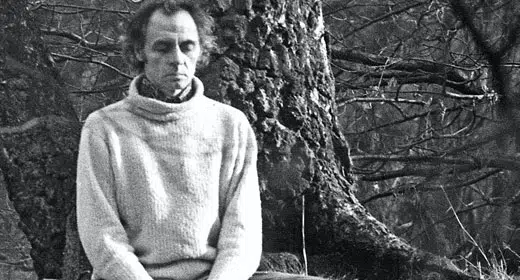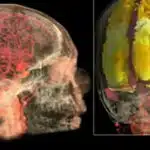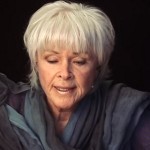The Politics of Experience R. D. Laing (1967) Chapter I. Persons and Experience: That great and true Amphibian whose nature is disposed to live,
 not only like other creatures in divers elements, but in divided and distinguished worlds. SIR THOMAS BROWNE, Religio Medici. Experience as evidence
not only like other creatures in divers elements, but in divided and distinguished worlds. SIR THOMAS BROWNE, Religio Medici. Experience as evidence
EVEN facts become fictions without adequate ways of seeing “the facts”. We do not need theories so much as the experience that is the source of the theory. We are not satisfied with faith, in the sense of an implausible hypothesis irrationally held: we demand to experience the “evidence”.
We can see other people”s behaviour, but not their experience. This has led some people to insist that psychology has nothing to do with the other person”s experience, but only with his behaviour.
The other person”s behaviour is an experience of mine. My behaviour is an experience of the other. The task of social phenomenology is to relate my experience of the other”s behaviour to the other”s experience of my behaviour. Its study is the relation between experience and experience: its true field is inter-experience.
I see you, and you see me. I experience you, and you experience me. I see your behaviour. You see my behaviour. But I do not and never have and never will see your experience of me. Just as you cannot “see” my experience of you. My experience of you is not “inside” me. It is simply you, as I experience you. And I do not experience you as inside me. Similarly, I take it that you do not experience me as inside you.
“My experience of you” is just another form of words for “you-as-l-experience-you”, and “your experience of me” equals “me-as-you-experience-me”. Your experience of me is not inside you and my experience of you is not inside me, but your experience of me is invisible to me and my experience of you is invisible to you.
I cannot experience your experience. You cannot experience my experience. We are both invisible men. All men are invisible to one another. Experience used to be called The Soul. Experience as invisibility of man to man is at the same time more evidenhan anything. Only experience is evident. Experience is the only evidence. Psychology is the logos of experience. Psychology is the structure of the evidence, and hence psychology is the science of sciences.
If, however. experience is evidence, how can one ever study the experience of the other? For the experience of the other is not evident to me, as it is not and never can be an experience of mine.
I cannot avoid trying to understand your experience, because although I do not experience your experience, which is invisible to me (and non-tastable, non-touchable, non-smellable, and inaudible), yet I experience you as experiencing.
I do not experience your experience. But I experience you as experiencing. I experience myself as experienced by you. And I experience you as experiencing yourself as experienced by me. And so on.
The study of the experience of others, is based on inferences I make, from my experience of you experiencing me, about how you are experiencing me experiencing you experiencing me….
Social phenomenology is the science of my own and of others” experience. It is concerned with the relation between my experience of you and your experience of me. That is, with inter-experience. It is concerned with your behaviour and my behaviour as I experience it, and your and my behaviour as you experience it.
Since your and their experience is invisible to me as mine is to you and them, I seek to make evident to the others, through their experience of my behaviour, what I infer of your experience, through my experience of your behaviour. This is the crux of social phenomenology.
Natural science is concerned only with the observer”s experience of things. Never with the way things experience us. That is not to say that things do not react to us, and to each other.
Natural science knows nothing of the relation between behaviour and experience. The nature of this relation is mysterious – in Marcel”s sense. That is to say, it is not an objective problem. There is no traditional logic to express it. There is no developed method of understanding its nature. But this relation is the copula of our science if science means a form of knowledge adequate to its subject. The relation between experience and behaviour is the stone that the builders will reject at their peril. Without it the whole structure of our theory and practice must collapse.
Experience is invisible to the other. But experience is not “subjective” rather than “objective”, not “inner” rather than “outer”, not process rather than praxis, not input rather than output, not psychic rather than somatic, not some doubtful data dredged up from introspection rather than extrospection. Least of all is experience “intrapsychic process”. Such transactions, object-relations, interpersonal relations, transference, counter- transference, as we suppose to go on between people are not the interplay merely of two objects in space, each equipped with ongoing intra-psychic processes.
This distinction between outer and inner usually refers to the distinction between behaviour and experience; but sometimes it refers to some experiences that are supposed to be “inner” in contrast to others that are “outer”. More accurately this is a distinction between different modalities of experience, namely, perception (as outer) in contrast to imagination etc. (as inner). But perception, imagination, phantasy, reverie, dreams, memory, are simply different modalities of experience, none more “inner” or “outer” than any others.
Yet this way of talking does reflect a split in our experience. We seem to live in two worlds, and many people are aware only of the “outer” rump. As long as we remember that the “inner” world is not some space “inside” the body or the mind, this way of talking can serve our purpose. (It was good enough for William Blake.) The “inner”, then, is our personal idiom of experiencing our bodies, other people, the animate and inanimate world: imagination, dreams, phantasy, and beyond that to ever further reaches of experience.
Bertrand Russell once remarked that the stars are in one”s brain.
The stars as I perceive them are no more or less in my brain than the stars as I imagine them. I do not imagine them to be in my head, any more than I see them in my head.
The relation of experience to behaviour is not that of inner to outer. My experience is not inside my head. My experience of this room is out there in the room.
To say that my experience is intra-psychic is to presuppose that there is a psyche that my experience is in My psyche is my experience, my experience is my psyche.
Many people used to believe that angels moved the stars. It now appears that they do not. As a result of this and like revelations, many people do not now believe in angels.
Many people used to believe that the “seat” of the soul was somewhere in the brain. Since brains began to be opened up frequently, no one has seen “the soul”. As a result of this and like revelations, many people do not now believe in the soul.
Who could suppose that angels move the stars, or be so superstitious as to suppose that because one cannot see one”s soul at the end of a microscope it does not exist?
II. Interpersonal experience and behaviour
Our task is both to experience and to conceive the concrete, that is to say, reality in its fullness and wholeness.
But this is quite impossible, immediately. Experientially and conceptually, we have fragments.
[Under person, the Oxford English Dictionary gives eight variants: a part played in a drama, or in life; an individual human being; the living body of a human being; the actual self of a human being; a human being or body corporate or corporation with rights or duties recognised in law; theologically applied, the three modes of the Divine Being in the Godhead; grammatically, each of the three classes of pronouns and corresponding distinctions in verbs denoting the person speaking, i. e. in the first, second, third person respectively, and so on; zoologically, each individual of a compound or colonial organism – a zooid.
As we are concerned here with human beings, our two most relevant variants are person as persona, mask, part being played; and person as actual self.]
We can begin from concepts of the single person, from the relations between two or more persons, from groups or from society at large; or from the material world, and conceive of individuals as secondary. We can derive the main determinants of our individual and social behaviour from external exigencies. All these views are partial vistas and partial concepts. Theoretically one needs a spiral of expanding and contracting schemata that enable us to move freely and without discontinuity from varying degrees of abstraction to greater or lesser degrees of concreteness. Theory is the articulated vision of experience. This book begins and ends with the person.
Can human beings be persons today? Can a man be his actual self with another man or woman ? Before we can ask such an optimistic question as “What is a personal relationship ?”, we have to ask if a personal relationship is possible, or, are persons possible in our present situation? We are concerned with the possibility of man. This question can be asked only through its facets. Is love possible ? Is freedom possible?
Whether or not all, or some, or no human beings are persons, I wish to define a person in a twofold way: in terms of experience, as a centre of orientation of the objective universe; and in terms of behaviour, as the origin of actions. Personal experience transforms a given field into a field of intention and action: only through action can our experience be transformed. It is tempting and facile to regard “persons” as only separate objects in space, who can be studied as any other natural objects can be studied. But just as Kierkegaard remarked that one will never find consciousness by looking down a microscope at brain cells or anything else, so one will never find persons by studying persons as though they were only objects. A person is the me or you, he or she, whereby an object is experienced. Are these centres of experience, and origins of actions, living in entirely unrelated worlds of their own composition? Everyone must refer here to their own experience. My own experience as a centre of experience and origin of action tells me that this is not so. My experience and my action occur in a social field of reciprocal influence and interaction. I experience myself, identifiable as Ronald Laing by myself and others, as experienced by and acted upon by others, who refer to that person I call “me” as “you” or “him”, or grouped together as “one of us” or “one of them” or “one of you”.
This feature of personal relations does not arise in the correlation of the behaviour of non-personal objects. Many social scientists deal with their embarrassment by denying its occasion. Nevertheless, the natural scientific world is complicated by the presence of certain identifiable entities, re-identifiable reliably over periods of years, whose behaviour is either the manifestation or a concealment of a view of the world equivalent in ontological status to that of the scientist.
People may be observed to sleep, eat, walk, talk, etc. in relatively predictable ways. We must not be content with observation of this kind alone. Observation of behaviour must be extended by inference to attributions about experience. Only when we can begin to do this can we really construct the experiential-behavioural system that is the human species.
It is quite possible to study the visible, audible, smellable effulgences of human bodies, and much study of human behaviour has been in those terms. One can lump together very large numbers of units of behaviour and regard them as a statistical population, in no way different from the multiplicity constituting a system of non-human objects. But one will not be studying persons. In a science of persons, I shall state as axiomatic that: behaviour is a function of experience; and both experience and behaviour are always in relation to someone or something other than self.
When two (or more) persons are in relation, the behaviour of each towards the other is mediated by the experience by each of the other, and the experience of each is mediated by the behaviour of each. There is no contiguity between the behaviour of one person and that of the other. Much human behaviour can be seen as unilateral or bilateral attempts to eliminate experience. A person may treat another as though he was not a person, and he may act himself as though he was not a person. There is no contiguity between one person”s experience and another. My experience of you is always mediated through your behaviour. Behaviour that is the direct consequence of impact, as of one billiard-ball hitting another, or experience directly transmitted to experience, as in the possible cases of extra-sensory perception, is not personal.

















































